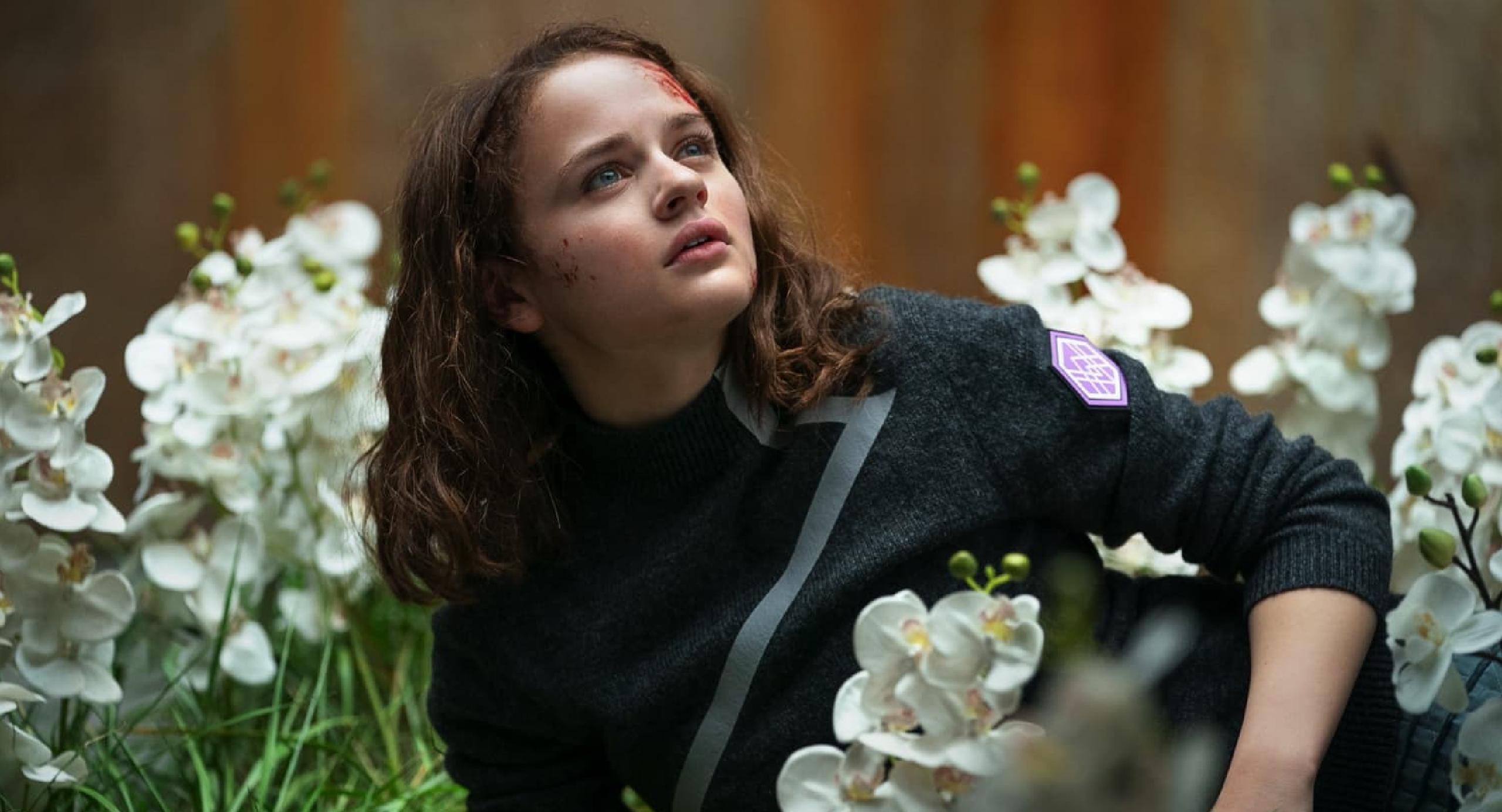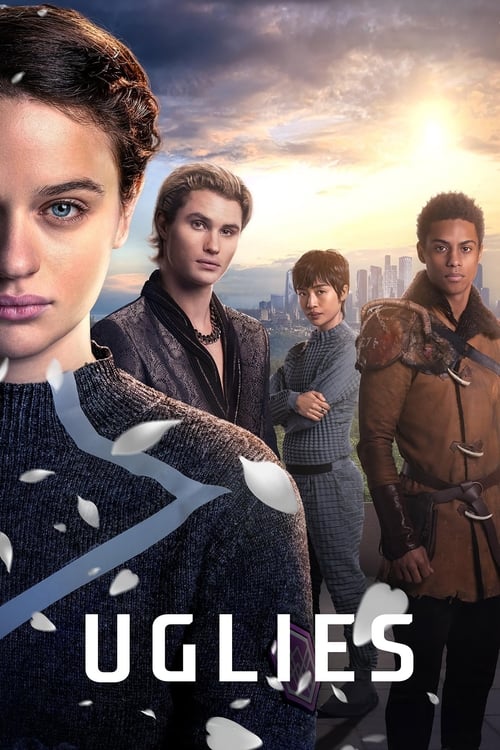Uglies – Film Review
Published September 15, 2024

Uglies, a science fiction drama directed by McG and based on Scott Westerfeld’s popular YA novel, presents a futuristic dystopian society where beauty is controlled by genetic modification and surgery. While the novel captivated readers with its social commentary on conformity and the pursuit of perfection, the film adaptation falls flat, failing to capture the depth of the original source material or provide an engaging cinematic experience.
One of the primary draws of Uglies is its depiction of a post-apocalyptic society in which natural resources have been exhausted, and humanity has turned to genetically modified orchids for energy. The world-building, which had potential to stand out as a unique setting for a dystopian future, feels superficial. The contrast between the “Uglies” and “Pretties” – those who undergo the mandatory surgery at age 16 – is central to the story, but the visual representation is overly simplistic and lacks the nuance needed to drive home the film’s message.
From a purely aesthetic standpoint, the film looks polished, but the glossy visuals feel like an empty shell, covering a lack of substance. The futuristic City where the Pretties reside is sleek and modern, but there’s a distinct lack of personality or atmosphere. It is hard to connect with the setting when it seems like a high-budget rendering of a generic dystopian world, devoid of the gritty realism that could have given it life. While McG’s direction manages to keep the scenes moving briskly, the film suffers from a general lack of immersion.
At the heart of Uglies is Tally Youngblood (Joey King), who navigates a world divided by beauty. The film tries to explore weighty themes such as the dangers of societal conformity, the loss of individuality, and the ethical implications of altering people’s minds and bodies, but it does so in a frustratingly shallow manner.
The story stumbles from one predictable trope to another, with little attempt to explore new ground in the dystopian genre. The ideas of rebellion against an oppressive system, a secret haven for those who refuse to conform, and a morally ambiguous authority figure all feel borrowed from better films and books. Rather than expanding on these themes in a meaningful way, Uglies reduces them to basic plot points, leaving the audience with a story that lacks emotional impact.
The stakes feel underdeveloped, and the tension that should accompany Tally’s internal struggle – to conform or rebel – is diluted by the film’s heavy-handedness. There’s little room for the viewer to empathize with her journey, as the narrative rushes through key developments, offering few moments for reflection or emotional depth. What could have been a powerful commentary on beauty and self-worth instead becomes a series of clichés strung together by formulaic dialogue.
Joey King, who has delivered commendable performances in other films, is unfortunately underutilized here. Her portrayal of Tally lacks the complexity needed to carry the story. Tally’s journey from an eager participant in the system to a conflicted rebel is rushed and unconvincing. The character’s growth feels forced, and King is not given the space to explore the more nuanced aspects of Tally’s personality. As a result, Tally becomes a passive protagonist, reacting to events rather than actively shaping them.
Keith Powers as David, the leader of the rebels, is similarly one-dimensional. His role as the love interest and the voice of rebellion feels underdeveloped, reducing him to a mere plot device. There’s little chemistry between him and King, and their interactions lack the emotional weight needed to make their relationship believable. Instead of being a character that represents a new way of thinking, David is reduced to a vague symbol of hope, never given the opportunity to evolve beyond a surface-level archetype.
Brianne Tju as Shay, Tally’s rebellious friend, is perhaps the most compelling character in the film, but even she suffers from weak writing. Shay’s motivations are clear, but her arc is too abrupt, leaving her character feeling unfinished. Laverne Cox as Dr. Cable, the film’s antagonist, delivers a competent performance, but her character is so thinly written that Cox’s natural charisma cannot elevate the role. Dr. Cable is the standard authoritarian figure with little depth, her motivations left largely unexplored.
One of the most disappointing aspects of Uglies is how it squanders its potential for insightful social commentary. The original novel dealt with complex themes surrounding beauty standards, societal pressure, and the ways in which governments can manipulate individuals for control. However, the film version reduces these ideas to simplistic dichotomies of “good” versus “evil,” without delving into the intricacies of the system it seeks to criticize.
The film touches on the idea that the surgery not only alters one’s appearance but also affects brain function, making people easier to control. This is a fascinating concept that could have been explored to great effect, but it is brushed aside in favor of a more action-oriented narrative. Rather than challenging the audience to think critically about the implications of such a society, Uglies opts for a more straightforward, and ultimately forgettable, storyline.
The pacing of Uglies is another major issue. The film moves at such a rapid pace that it doesn’t allow for any of its ideas to breathe. Tally’s transformation from compliant citizen to rebel feels rushed, and the plot twists, while intended to be surprising, are so telegraphed that they lose their impact. The movie tries to cram too much into its runtime, leaving important character moments and plot developments underdeveloped.
The tone of the film is inconsistent, wavering between moments of teen drama and action sequences that feel out of place in what should be a more introspective narrative. McG’s direction, while competent in the action scenes, fails to strike the right balance between spectacle and substance. The result is a film that feels disjointed, with scenes that often clash tonally rather than complement each other.
Uglies had the potential to be a thought-provoking and visually engaging addition to the dystopian genre, but it falls short on nearly every level. With underdeveloped characters, a rushed plot, and a lack of meaningful social commentary, the film ultimately feels like a missed opportunity. For fans of the original novel, the film will likely be a disappointment, and for casual viewers, it offers little to distinguish itself from the myriad of other dystopian stories that have come before.
